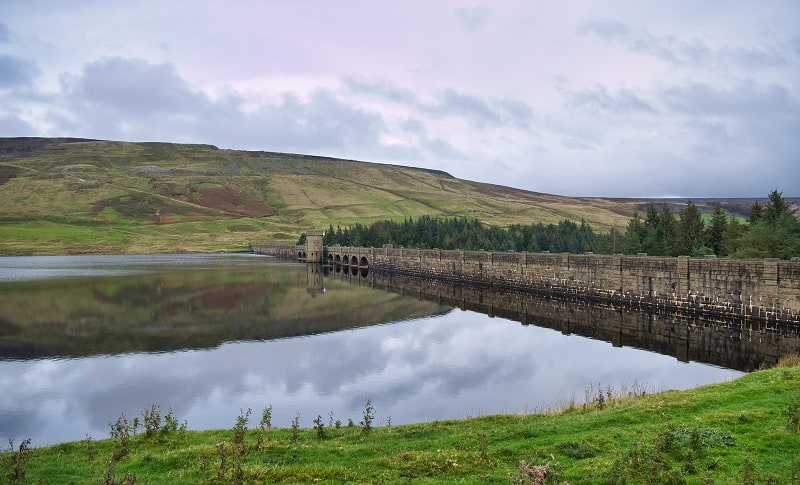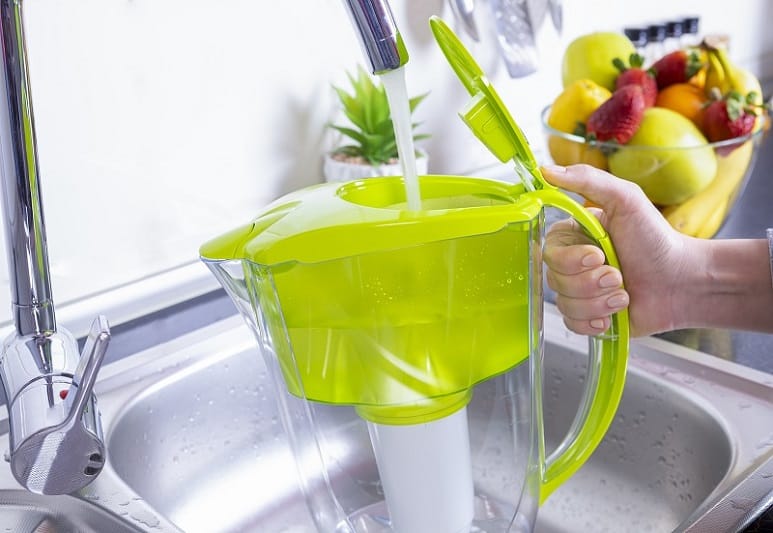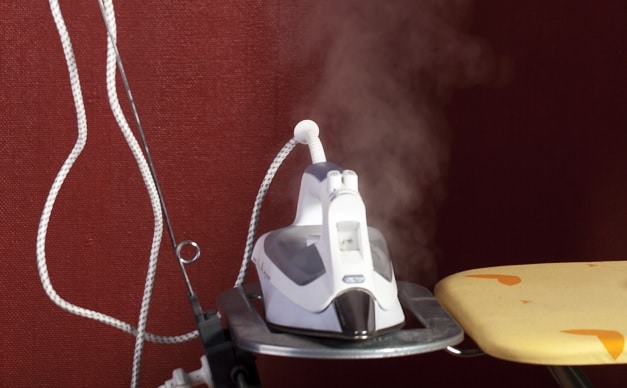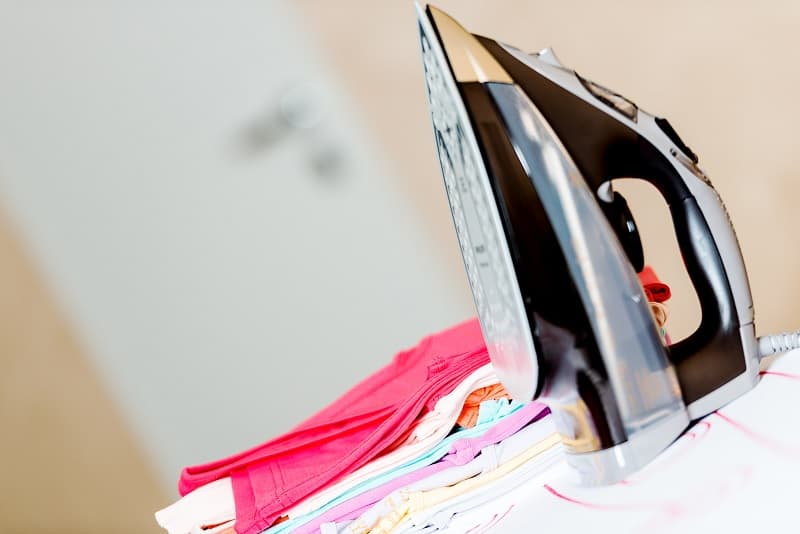You might have heard that using tap water in a steam iron is a recipe for disaster. Some think that it can ruin your clothes and your iron. For this reason, many people recommend using distilled water instead. However, it’s not that simple.
Using distilled water can present its own problems such as voiding your warranty or even causing cracks and leaks in your steam iron.
Whether or not you should use tap water, distilled water or a combination of both depends on your model of steam iron and the type of tap water (hard or soft) where you live.
In this article we’re going to find out if and when you should use distilled water in your steam iron, and whether there’s a better alternative.
Hard vs. Soft Water
Before we get into the effect that water has on your appliances, we need to understand the different types of water available.
You may be surprised to learn that not everyone in the UK is drinking the same water.
Of course, water is treated in mostly the same way, however, some homes are provided with hard water and some with soft water.
According to the Evening Standard, 60% of homes in the UK have hard water running through their pipes.
What is the difference?
Water is either hard or soft depending how it gets to you. As water passes through soil and rock, such as limestone and chalk, tiny mineral deposits (such as calcium and magnesium) are carried along making the water ‘hard’. Soft water simply passes through fewer ‘hard’ materials.
When hard water comes into contact with your surfaces, it evaporates leaving behind a chalky, white substance called limescale.
You can check how hard the water is in your area using this map and postcode checker.

Should I be worried about hard water?
There are some downsides to using hard water, however, it’s completely safe to consume. While it won’t be detrimental to your health, it may have some adverse effects on your wallet!
When limescale builds up in appliances such as your kettle, dishwasher, washing machine etc, more energy is needed to run the appliance. This can slightly increase the price of your electricity bill.
This is why it’s important to clean limescale off your appliances and your surfaces. However, this can also be a costly pursuit as it’s a tough substance to remove.
Different Types of Water Treatment
As the majority of the UK has hard water, it’s no surprise that people are interested in different ways to treat their water. Here are some different methods of treating water:
Filtered water

Even though tap water is safe to drink, some people prefer to use a filtering device. These can come in the form of attachments to your tap or a standalone water jug.
Filtering water ensures that you don’t consume any toxic chemicals as these have been known to infiltrate water supplies, albeit very rarely. However, many water filters don’t actually remove minerals.
Boiled water
Boiling water is similar to filtering it. It can remove bacteria and impurities, but it doesn’t remove dissolved solids.
Distilled water
Where purifying water removes bacteria and impurities, distilled water also removes minerals. This makes it an attractive choice for use in heating appliances as it won’t leave limescale behind.
So, while boiling and filtering water removes impurities, the process of distilling water removes the mineral build up which can affect your appliances.
Can I Use Hard Water in a Steam Iron?
Given the potential for limescale build-up on your appliances, you may be wondering whether hard water is safe to use in your steam iron. In short, yes.
Tap water is readily available and accessible to everyone in the UK. With this in mind, most manufacturers have made their steam irons compatible with tap water.
However, whilst you may not see any immediate effects, long-term use of hard water can lead to limescale build up which reduces the lifespan of your appliance, if not correctly maintained.
How Do I Know if I Can Use Tap Water?
Your first step should be to refer to the instruction manual. The manufacturer will include any specific instructions on which types of water to use and avoid.
That said, many appliances are available worldwide, so they provide general instructions that apply across the board, rather than to a specific location. In addition, you may no longer have the instruction manual.
Using Distilled Water in Steam Irons
Whilst it may seem like a safe bet, using distilled water is not always guaranteed to be good for the iron.
In fact, there are some irons that have been manufactured specifically to be compatible with tap water. In this case, distilled water is not necessary and can even be harmful to the iron.
It is believed that distilled water can cause irons to leak and even break. As there are no minerals in distilled water, it can wick minerals up from the iron itself which degrades it over time.
Using distilled or softened water may even void the warranty for some models. Distilled water is hard to find in UK supermarkets, but there are a few other places you can buy it.

What Is the Best Solution?
It is generally agreed that the best course of action is to use an equal mixture of tap and distilled water for a steam iron.
This stops too much limescale building up on your appliance, but also reduces the possible negative effects that distilled water can have.
If you do live in a hard water area, you should also perform routine cleaning on your steam iron to remove any build-up of limescale.

In The Wash is your guide to the best laundry and cleaning products, tips and tricks. Our mission is to solve the UK’s cleaning and laundry dilemmas!






